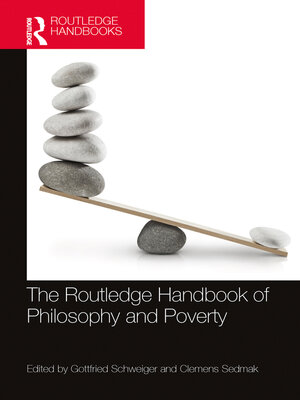The Routledge Handbook of Philosophy and Poverty
ebook ∣ Routledge Handbooks in Applied Ethics
By Gottfried Schweiger

Sign up to save your library
With an OverDrive account, you can save your favorite libraries for at-a-glance information about availability. Find out more about OverDrive accounts.
Find this title in Libby, the library reading app by OverDrive.



Search for a digital library with this title
Title found at these libraries:
| Library Name | Distance |
|---|---|
| Loading... |
Winner of the 2024 Academics Stand Against Poverty Book of the Year Anthology Award
The problem of poverty is global in scope and has devastating consequences for many essential aspects of life: health, education, political participation, autonomy, and psychological well-being. The Routledge Handbook of Philosophy and Poverty presents the current state of philosophical research on poverty in its breadth and depth. It features 39 chapters divided into five thematic sections:
The handbook not only addresses questions concerning individual, collective, and institutional responsibility towards people in extreme poverty and the moral wrong of poverty, but it also tackles emerging applied issues that are connected to poverty such as gender, race, education, migration, and climate change. Additionally, it features perspectives on poverty from the history of Western philosophy, as well as non-Western views that explore issues unique to the Global South. Finally, the chapters in the first part provide an overview of the most important aspects of social science poverty research, which serves as an excellent resource for philosophers and philosophy students unfamiliar with how poverty is empirically researched in practice.
The Routledge Handbook of Philosophy and Poverty is an essential resource for students and researchers in philosophy, political science, sociology, development studies, and public policy who are working on poverty.







